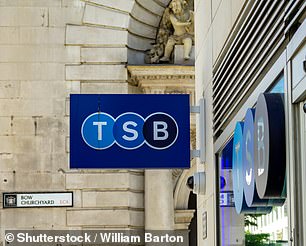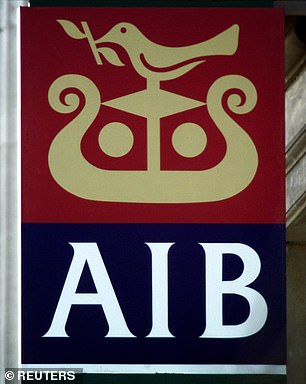Tens of thousands of fraud victims will be denied refunds, it was revealed yesterday.
Only four of the 21 major banks and building societies have promised to cover the first £100 lost to fraud under new banking rules introduced yesterday.
Scam victims face a “refund lottery” as banks and building societies have been given the power to deny refunds for money lost through fraud under £100, according to the finance website Personal Finder.
Virgin Money, TSB, AIB and Nationwide are the only major companies to have committed to refunding customers the first £100 lost to ‘push payment’ fraud, where victims are persuaded or tricked into authorizing a payment. to a scammer.
Meanwhile, HSBC, First Direct, Lloyds, Halifax and Bank of Scotland are among the banks that will not cover these first £100 of their customers’ losses.
Only four of the 21 major banks and building societies have promised to cover the first £100 lost to fraud under new banking rules introduced yesterday (file image)


Virgin Money, TSB, AIB and Nationwide are the only major companies to have committed to refunding customers the first £100 lost to ‘push payment’ fraud, which is where victims are persuaded or tricked into authorizing a payment. payment to a scammer (file image)


AIB and Nationwide also cover the first £100 lost to fraud for their customers (stock images)
Long-awaited rules to protect scam victims require banks to refund customers up to a maximum of £85,000 if they have lost cash.
The Payment Systems Regulator slashed the upper refund limit by £330,000 last month in a U-turn following pressure from ministers and industry bodies.
Under previous plans, customers would have received a refund of up to £415,000.
But the watchdog has left it up to banks to decide whether they decide to apply a £100 “excess”, except for vulnerable customers, who must be refunded in full.
Many of Britain’s biggest banks have not been clear, saying they “can” cover minor losses or will judge claims on a case-by-case basis.
Fraudsters stole £1.2bn in 2023 and £460m was lost due to APP fraud.
Victims received 62 percent of losses in the form of refunds and new rules have been put in place to increase the total amount returned to victims.
Losses in around one in three push payment fraud cases were £100 or less, according to data from banking industry body UK Finance.
Finder’s Liz Edwards said: ‘Our investigation reveals the refund lottery fraud victims now face.
‘According to 2023 fraud figures, more than 58,000 cases would not have resulted in any refunds if all companies had applied the excess.
“It doesn’t help that 12 banks have said they could apply it – customers don’t know what their situation is.”
However, consumers could soon have added protection under proposed new Treasury plans that would give banks the power to extend the time suspicious payments can be delayed by 72 hours.
This would give them time to intercept suspicious transfers before the money is sent to criminals.

